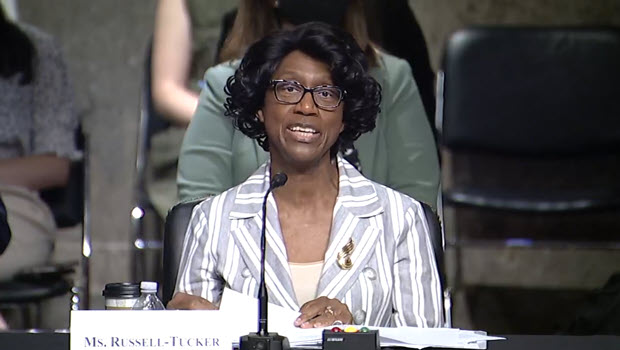Connecticut State Department of Education Commissioner Charlene Russell-Tucker and 2022 National Teacher of the Year Kurt Russell testified last week before the U.S. Senate Committee on Health, Education, Labor and Pensions on the impact COVID has had on students academically, socially, and emotionally and the ways federal funding can facilitate improvements.
Russell-Tucker outlined Connecticut’s use of federal COVID-19 relief funding to support students’ recovery from the pandemic, emphasizing how student and teacher voice and family engagement have been critical to that work.
“Throughout this pandemic, and into recovery, we have made it a hallmark of our response and recovery efforts to work with our various partners and stakeholders — educators and administrators, families, students, advocates, policymakers, local health officials, and more — as often as possible to develop and implement our policies,” Russell-Tucker said in prepared testimony. “Policies designed without hearing different perspectives, and without our constituents’ input and feedback, are not likely to produce the intended and needed results…This collaborative approach is the way we build effective policy; we bring it to the people we serve and create numerous opportunities for conversation.”
National Teacher of the Year Kurt Russell, a 25-year veteran high school educator who teaches history in his hometown of Oberlin, Ohio, discussed the pandemic’s impact on his students and shared how his school has benefited from federal COVID-19 relief aid. Among other things, federal aid has enabled his school to bring in math and literacy coaches, provide tutoring and enrichment programs for students, and hire the school’s first social worker.
“Collectively, these programs are strengthening our school’s academic and social success and giving us hope for a full recovery in the future,” he said. “We will continue to invest in our kids to make sure we can get our students back on track with learning and engaged in school, while also paying attention to their non-academic needs. I do have concerns that, while we have the resources now for these new staff and programs, once COVID-19 relief funding runs out we may not be able to continue these critical supports.”







